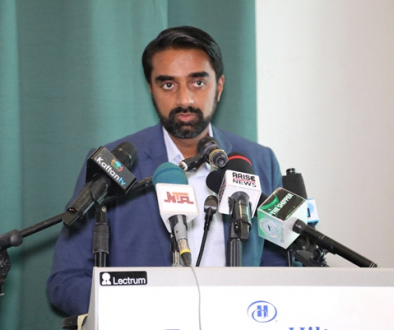Beneficial Ownership Disclosure
 It is usually surprising when one reads through the excessive Newspaper adverts to congratulate political officers, their family members or other politically exposed persons on their birthdays. They are usually hailed for being the chairman/founder of a number of companies, many of which were hitherto unheard of or have no verifiable history even in high-profile industry sectors. A hypothesis is that some of these companies are corporate vehicles that have been created in order to be used for illicit purposes including embezzlement, money laundering, bribery and corruption, terrorist financing or other illegal activities.
It is usually surprising when one reads through the excessive Newspaper adverts to congratulate political officers, their family members or other politically exposed persons on their birthdays. They are usually hailed for being the chairman/founder of a number of companies, many of which were hitherto unheard of or have no verifiable history even in high-profile industry sectors. A hypothesis is that some of these companies are corporate vehicles that have been created in order to be used for illicit purposes including embezzlement, money laundering, bribery and corruption, terrorist financing or other illegal activities.
To be sure corporate vehicles are not the sole preserve of corrupt politicians, they are sometimes used by large multinationals albeit legally to facilitate transfer pricing, tax fraud and other illegal activities.
In order for civil society and appropriate regulatory agencies to be able to track illicit financial flows and bring corrupt practices to book, then the beneficial owners behind these corporate vehicles should be disclosed as a matter of principle.
A beneficial owner is a person who enjoys the benefits of ownership even though title is in another person’s name. The Anti- Corruption issue briefing at the recently concluded World Economic Forum, mentioned that beneficial ownership is at the fore of the pressing corruption issues facing the globe.
Beneficial ownership information is typically obscured through the use of shell companies, use of intermediaries or associates in forming legal persons and complex ownership structures involving shares registered in the name of other legal entities including associated companies and family members. For multinational corporations working in several countries, they are sometimes aided by loopholes in international laws that prevent a particular country from having jurisdiction over the operations of a company in other countries.
According to the Financial Action Task Force, “the misuse of corporate vehicles could be significantly reduced if information regarding both the legal owner and the beneficial owner, the source of the corporate vehicle’s assets, and its activities were readily available to the authorities, and may I add to the public.
The Managing Director of Transparency International (TI), Corbus Swadt said at Davos that a low-hanging fruit for global anti-corruption efforts would be to require that all companies that bid for public contracts have public registers of their beneficial owners. This is germane considering that the OECD estimates that two-thirds of the time, grand corruption occurs in public procurement. For example, in Nigeria ministry officials reportedly own the companies that provide services to the ministries.
In 2013, The Extractive Industries Transparency Initiative (EITI) launched a pilot on beneficial ownership which seeks to ensure that information about extractive companies’ beneficial owners is available to the public. EITI sets out the following provisions related to beneficial ownership:
- It is recommended that implementing countries maintain a publicly available register of the beneficial owners of the corporate entity (is) that bid for, operate invest in extractive assets, including the identity (is) of their beneficial owner(s) and the level of ownership. Where this information is already publicly available, e.g. through filing to corporate regulators and stock exchanges, the EITI Report should include guidance on how to access this information.
- Where such registers do not exist or are incomplete, it is recommended that implementing countries request companies participating in the EITI process provide this information for inclusion in the EITI Report.
- It is required that the government and/or state-owned enterprises disclose their level of beneficial ownership in oil, gas and mining companies operating within the country, and any changes in the level of ownership during the accounting period covered by the EITI Report
While the EITI effort is specific to the extractive industry, it is recommended that civil society organizations and even businesses push for disclosure of beneficial ownership in all companies who bid for government contracts. It will level the playing ground and reduce the opportunities for corruption and state capture that currently holds sway in Nigeria.
image source: Tackle Tax Havens


